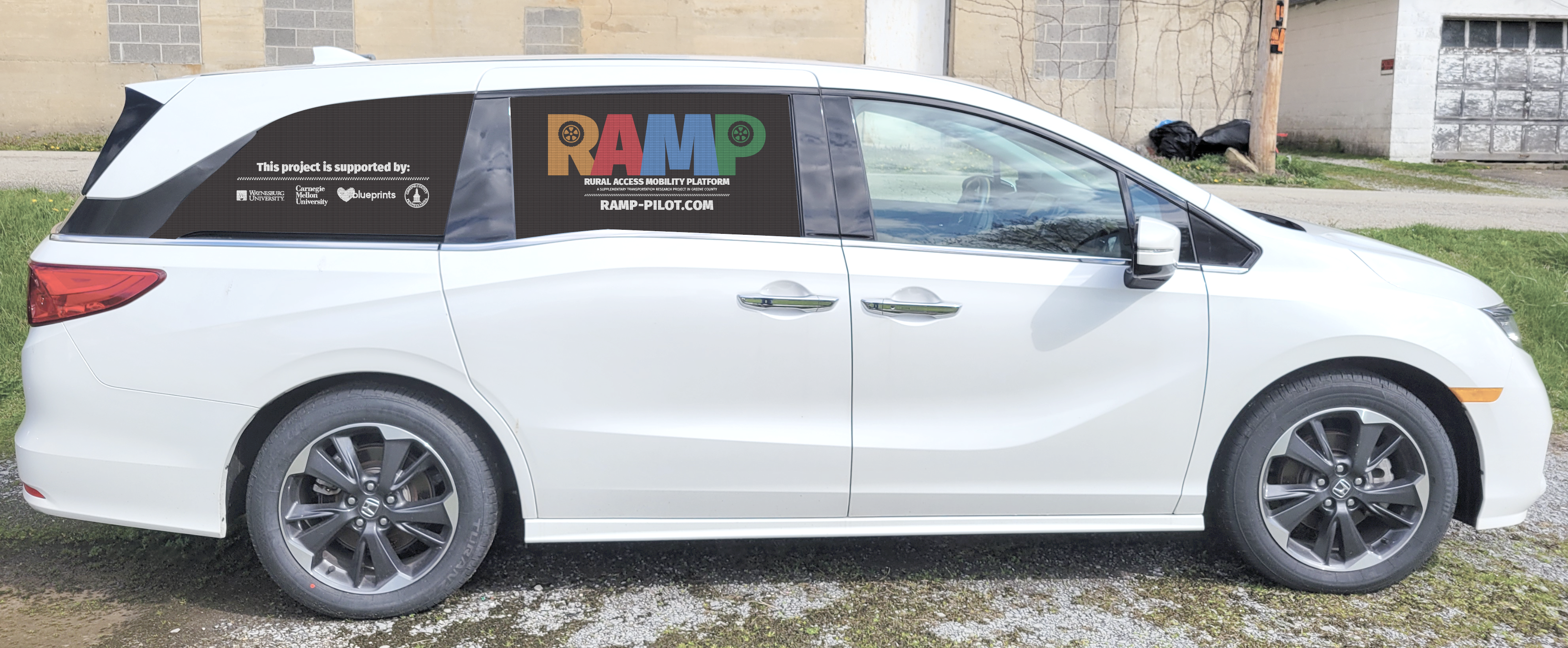Greene County boasts a landscape of rolling hills, lively farmland, covered bridges, and tranquil forests. While the natural scenery of the county brings joy to its residents, it also unfortunately isolates a portion of it who do not have access to reliable transportation. Blueprints is partnering with Carnegie Mellon University, Waynesburg University, and the Greene County Commissioners to pilot a project called RAMP with hopes of closing these transportation gaps.
“Transportation is critical to so many aspects of life,” said Jeff Fondelier, CEO of Blueprints. “In a rural county where true public transportation is unavailable, there is a limit to where one can work, shop, access healthcare or seek opportunities to thrive.”
RAMP, short for Rural Access Mobility Platform, is a research project funded by the US Department of Energy. This pilot project will test the viability of a micro-transit on-demand shared mobility service, similar to Lyft or Uber, in the rural areas of Greene County.
The initiative aims to improve the efficiency and availability of transportation to those who are not eligible for Greene County Transportation or do not have a reliable personally owned vehicle. It will provide opportunities to access essential needs and services such as food, employment, security, healthcare, or civic activity engagement.
“RAMP can ultimately help the vibrancy of Greene County,” added Fondelier who has been with Blueprints since 2004. “It can help connect people who can and want to work to meaningful employment; it can help those struggling with food insecurity access nutrition; it can improve health outcomes by helping people access routine and more emergent care; and it can engage people in the Greene County community.”
From May 1 until August, those looking to utilize the service will need to register for a ride by accessing the platform at www.ramp-pilot.com or by calling 724-780 RAMP (7267). Blueprints will have three Honda vans running routes from 8am – 5pm Monday through Friday. Two vans will be “On-Demand” and one will act as a static shuttle between Waynesburg and Carmichaels with trips to Washington and Morgantown available as well.
Once initiated via website or phone call, the ride system will provide an estimated time for pick up and drop off. Since the platform requires internet access, routes will be limited to areas of the county with cell coverage to ensure the safety of all drivers and riders.
Fondelier also noted that RAMP is not intended to displace existing Greene County Transportation services, but rather to complement it. Those eligible for Greene County Transportation should continue to use it.
It additionally seeks to use this temporary opportunity for research purposes to quantify the impact of the service. If successful, there may be long-term financial support opportunities to continue the operation of RAMP in Greene County. Rider feedback may also be used to adjust the days or hours of operation.
Fondelier would like to thank Sean Qian, Ph.D. from CMU, the primary researcher, who brought the project to Greene County and to Blueprints, and Stacey Brodak, from Waynesburg University, who has been integral to the preliminary research and planning. Lastly, he is grateful to the Greene County Commissioners for their support and guidance.
